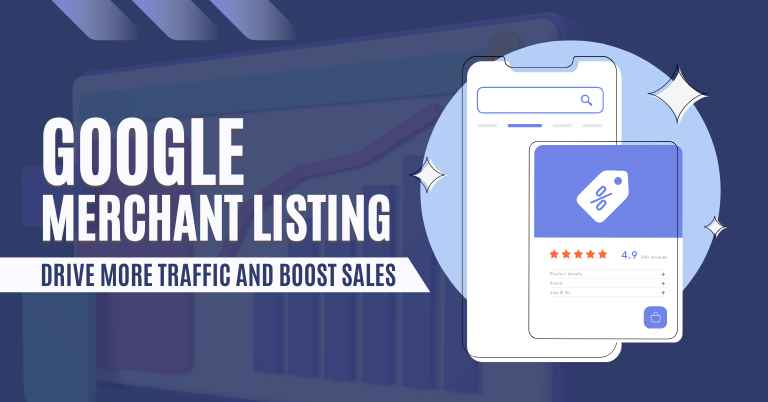Link Building Outreach Guide For Beginners is a concise, accurate guide that helps beginners understand how to effectively build backlinks through outreach. In this guide, you will learn the basics of link-building outreach, including the steps involved, best practices, and tips for success.
Building links is not just about improving your search engine rankings; it’s about forging valuable connections and establishing credibility within your industry.
This guide is perfect for those new to SEO and looking to improve their website’s ranking and visibility through a solid link-building strategy. By following the advice and strategies outlined in this guide, beginners will gain the knowledge and confidence to start their own successful link-building outreach campaigns.
| Note: Understanding the Basics of Link-Building |
|---|
| Link-building lies at the core of SEO strategies, influencing a website’s visibility and credibility. Central to this concept are backlinks, which serve as pathways connecting different web pages. Let’s delve deeper into what backlinks entail and their significance in the digital landscape. What are Backlinks? Backlinks, also known as inbound or incoming links, refer to hyperlinks on external websites that direct users to your site. They essentially act as referrals from one webpage to another, indicating to search engines the relevance and authority of your content. Imagine each backlink as a vote of confidence from another site, endorsing the quality and trustworthiness of your content. Types of Backlinks 1. Natural Backlinks: These are organic links spontaneously given by other website owners without any solicitation. They typically occur when your content is deemed valuable or relevant by others, prompting them to link back to it. 2. Manual Backlinks: Unlike natural backlinks, manual backlinks are deliberately acquired through proactive efforts. This involves outreach campaigns, guest posting, or collaborations with other website owners to secure links back to your site. 3. Do-Follow vs. No-Follow Links: Another crucial distinction lies in the nature of links in terms of passing authority. Do-follow links are endorsements that transfer authority from the linking site to the linked page, contributing to its credibility in the eyes of search engines. Conversely, no-follow links do not carry this authority transfer, though they still hold value in terms of referral traffic and brand visibility. Understanding these nuances is pivotal in devising an effective link-building strategy. By cultivating a diverse portfolio of backlinks, encompassing both natural and manual acquisitions, website owners can bolster their online presence and ascend the ranks of search engine results pages. |
Let's See the Topic Overview
Why Link Building Is Essential For SEO?
Link building is a crucial aspect of search engine optimization (SEO). It involves acquiring external links from other websites that point back to your own. These links act as votes of credibility and trustworthiness in the eyes of search engines like Google. In other words, the more high-quality links you have pointing to your website, the more likely it is to rank higher in search engine results pages (SERPs).
Importance Of Links In Search Engine Rankings
Search engines use complex algorithms to determine the relevance and authority of websites. One of the key factors these algorithms consider is the number and quality of links pointing to a website. Links serve as endorsements, indicating to search engines that other websites find your content valuable and worth sharing. Consequently, having a strong link profile can significantly boost your chances of ranking higher in search results.
Benefits Of Link Building For Website Visibility
Link building plays a pivotal role in improving your website’s visibility and organic traffic. When reputable websites link to your content, it increases the likelihood of your pages getting discovered by a wider audience. This greater exposure can lead to increased website visits, engagement, and conversions. Moreover, by targeting relevant and authoritative websites within your industry, you can attract the attention of your target audience, increasing your chances of earning valuable organic traffic.
How Links Improve Domain Authority?
Domain authority is a measure of a website’s overall credibility and influence within its niche. Links from high-authority websites significantly impact your own domain authority. When reputable websites link to your content, search engines view your website as more trustworthy and reliable. Consequently, this can enhance your chances of ranking higher in search results and increase your website’s visibility. By consistently building high-quality links, you can improve your domain authority and establish your website as an authoritative source within your industry.
Finding Relevant Websites For Outreach
Link-building outreach is a crucial part of any SEO strategy as it helps improve your website’s visibility and ranking on search engine results pages (SERPs). One of the first steps in the outreach process is finding relevant websites that can potentially link back to your content. In this guide, we will explore different techniques and tools that beginners can use to identify the right target audience and niche when conducting outreach.
Identifying Target Audience And Niche
Before diving into the process of finding websites for outreach, it is important to have a clear understanding of your target audience and niche. In order to effectively reach your target audience, you need to identify websites that cater to a similar niche or have an audience that would be interested in your content. Consider the following factors when identifying your target audience and niche:
- Research your industry or niche to understand the key topics and interests
- Identify demographics such as age, location, and interests of your target audience
- Find out which websites your target audience frequently visits
By understanding your target audience and niche, you can narrow down your search when finding relevant websites for outreach.
Using Advanced Search Operators For Effective Research
When it comes to conducting research for link-building outreach, using advanced search operators is a valuable technique. These operators allow you to refine your search queries and find websites that match specific criteria. Here are some useful advanced search operators to consider:
| Search Operator | Description |
|---|---|
| “Keyword” inurl:write-for-us | Search for websites that have a “write for us” page with a specific keyword |
| intitle:”guest post” + “Keyword” | Find websites that have “guest post” in the title, along with a specific keyword |
| site:.edu “Keyword” | Limit search results to educational websites that contain a specific keyword |
Using these advanced search operators can help you refine your search and find websites that are more likely to be open to link-building outreach.
Tools And Techniques For Finding Quality Websites
While advanced search operators can be effective in finding relevant websites, there are also several tools and techniques that can streamline the process for beginners. Here are some popular tools and techniques to consider:
- Backlink analysis tools: Tools like Ahrefs and Moz can provide insights into competitor backlinks, helping you find quality websites in your niche.
- Guest post directories: Online directories specifically created for guest posting can be a valuable resource for finding websites that accept guest posts.
- Community forums: Engaging with forums and communities related to your niche can help you discover websites frequented by your target audience.
By utilizing these tools and techniques, you can ensure that you find quality websites for your link-building outreach, increasing your chances of obtaining valuable backlinks.
Crafting Compelling Outreach Emails
When it comes to link-building outreach, crafting compelling emails is essential for achieving success. Your outreach email is a representation of your brand and can make or break your chances of getting a positive response. In this section, we’ll explore some effective strategies for writing outreach emails that grab the attention of your target recipients. With personalization and customization techniques, attention-grabbing subject lines, and effective email content and call-to-action strategies, your outreach emails will have a higher likelihood of generating the desired results.
Personalization And Customization Techniques
An important aspect of outreach emails is personalization and customization. Generic, mass-sent emails rarely get noticed. To increase your chances of success, it’s crucial to personalize your emails for each recipient. Here are some techniques that can help:
- Research your target recipient’s website, blog, or social media profiles to gather specific information about their industry or their recent work.
- Mention something specific about their recent blog post, article, or project to show that you’ve done your homework.
- Use the recipient’s name in the email greeting to create a personal connection.
| Example: |
|---|
| Hi [Recipient’s Name], |
| I recently came across your fantastic blog post about [Specific Topic], and I was impressed by your insights on [Specific Point]. |
Writing Attention-grabbing Subject Lines
The subject line is the first thing recipients see when they receive your email. A compelling subject line can increase the chances of your email being opened and read. Here are some tips for writing attention-grabbing subject lines:
- Keep it concise and compelling, using action words or posing intriguing questions.
- Include the recipient’s name or mention something specific to catch their attention.
- Avoid using overly spammy language that might deter recipients from opening your email.
Example:
Exciting Collaboration Opportunity for [Recipient's Name]!
Effective Email Content And Call-to-action Strategies
The content of your outreach email should be concise, engaging, and persuasive. Here are some strategies to consider:
- Clearly state the purpose of your email and explain how it benefits the recipient.
- Highlight any relevant credentials, achievements, or previous collaborations to build credibility.
- Make your call-to-action clear and specific, guiding the recipient towards the desired action.
- Avoid using a generic closing and instead, personalize it based on your recipient’s background or interests.
Example:
Hi [Recipient’s Name],
I recently discovered your [Website/Blog] and was impressed by the quality of your content on [Specific Topic]. As an expert in [Your Niche], I believe we could collaborate on a guest post that would be of great value to your audience.
With my expertise in [Specific Expertise], I am confident that I can provide an in-depth and informative article that aligns perfectly with your readers’ interests. I have previously contributed to leading publications such as [Publication Names].
I would be grateful for the opportunity to work together and contribute to your website. Please let me know if you’re interested, and I will provide you with more details and potential topic ideas.
Looking forward to your positive response!
Best regards,
[Your Name]
[Your Website/Contact Information]
By incorporating personalization, attention-grabbing subject lines, and effective email content and call-to-action strategies, your outreach emails will have a higher chance of success. Remember to always tailor your approach to each recipient and be genuine in your communication. Good luck with your link-building outreach efforts!
Nurturing Relationships With Webmasters
When it comes to link-building outreach, the key to success lies in nurturing relationships with webmasters. Building genuine connections with website owners can greatly increase your chances of obtaining high-quality backlinks and expanding your network. By taking the time to establish meaningful relationships, you can foster long-term partnerships that benefit both parties. Here are some tips for effectively building these connections:
1. Following Up And Maintaining Regular Contact
After initiating contact with a webmaster, it’s crucial to stay in touch to foster the relationship further. Following up allows you to remain on their radar and shows that you value the connection. Regular communication can be as simple as checking in with them periodically or sharing relevant industry insights. Additionally, you can offer any assistance if they have any questions or concerns. By maintaining regular contact, you keep the relationship strong and more likely to obtain future link opportunities.
2. Tips For Offering Value And Building Trust In Relationships
Offering value:
- Share valuable content: Provide content that aligns with their website’s niche or interests. This could take the form of guest blog posts, infographics, or data that their audience would find valuable.
- Provide exclusivity: Offer them the opportunity to feature unique content or insights that they won’t find elsewhere. This can entice them to establish a closer partnership.
Building trust:
- Be transparent: Clearly communicate your goals and intentions when reaching out to webmasters. Transparency helps establish trust and ensures that both parties are on the same page.
- Deliver on promises: If you promise to provide valuable content or assistance, make sure to deliver on your promises in a timely manner. This demonstrates reliability and builds trust in the relationship.
- Show gratitude: Express appreciation for any opportunities or collaborations that arise from the relationship. Thanking webmasters for their time and support helps to nurture a positive connection.
By offering value and building trust, you can strengthen your relationships with webmasters, making them more willing to collaborate with you in the future. Building these authentic connections is vital to successful link building outreach.
Overcoming Outreach Challenges And Rejections
As a beginner in the world of link-building outreach, you may encounter various challenges and face rejections along the way. However, with the right strategies and mindset, you can overcome these obstacles and achieve success in your outreach efforts. In this section, we will explore three key areas: dealing with unresponsive webmasters, handling rejection and negative responses, and overcoming common outreach obstacles.
Dealing With Unresponsive Webmasters
When reaching out to webmasters for link-building opportunities, it can be disheartening to receive no response. However, there are several ways you can navigate this situation:
- Follow up politely: If you haven’t received a response after your initial outreach, it’s important to follow up. Craft a short and friendly follow-up email, reminding the webmaster of your previous message and expressing your continued interest in collaborating.
- Change your approach: If you consistently face radio silence from certain webmasters, it may be time to revise your outreach strategy. Consider personalizing your emails further, offering something unique or valuable in return for a link, or trying a different method of contact, such as reaching out through social media.
- Expand your prospects: Don’t rely solely on a few webmasters. Research and reach out to a wider range of potential link prospects. Casting a wider net increases your chances of getting a response and building valuable connections.
Strategies For Handling Rejection And Negative Responses
Rejection is inevitable in any outreach campaign. However, how you handle it can make a difference in your overall success. Here are some effective strategies:
- Stay positive and maintain professionalism: Receiving a negative response can be discouraging, but it’s essential to maintain a positive attitude and respond professionally. Keep your emails courteous and thank the webmaster for their time, even if they decline your offer.
- Learn from the rejection: Every rejection is an opportunity to learn. Take the time to analyze the reasons behind the rejection and use the feedback to improve your outreach efforts. This will help you refine your approach and increase your chances of securing future link opportunities.
- Develop relationships with rejected contacts: Just because a webmaster declined your offer doesn’t mean the door is closed forever. Build relationships with these individuals by following them on social media, engaging with their content, and keeping the lines of communication open. They may become interested in collaborating in the future.
Overcoming Common Outreach Obstacles
Alongside rejection and unresponsiveness, there are several other common obstacles you may encounter during your outreach journey. Here are some tips for overcoming them:
- Identify and solve spam filter issues: Emails often end up in spam folders, causing them to be missed by webmasters. To overcome this, ensure your subject line is descriptive but not spammy, personalize your emails, and avoid excessive use of links or attachments that could trigger spam filters.
- Build credibility and trust: Webmasters receive numerous outreach emails every day, so it’s crucial to establish trust and credibility early on. Provide relevant and valuable content or resources, showcase your expertise, and present yourself professionally to increase your chances of receiving a positive response.
- Set realistic expectations: Not every outreach attempt will result in a link. It’s important to set realistic expectations and understand that rejection and obstacles are part of the process. Focus on continuously improving and learning from each experience, and celebrate the successes you do achieve.
Frequently Asked Questions
How Do I Start A Link Building Outreach Campaign?
To start a link-building outreach campaign, you need to create a list of target websites, craft personalized email templates, and send outreach emails to website owners or editors. Research and analyze your competition’s backlinks to inspire your outreach strategy.
Building relationships with influencers is key.
What Are The Benefits Of Link Building Outreach?
Link-building outreach can help increase your website’s domain authority, improve search engine rankings, drive organic traffic, and enhance brand visibility. It also allows you to establish relationships with influential websites and gain valuable backlinks, which can lead to higher conversion rates and more business opportunities.
How Can I Write Effective Outreach Emails For Link Building?
To write effective outreach emails for link building, personalize your email, offer relevant and valuable content, keep the message concise, show appreciation for their work, and explain how linking to your content will benefit them and their readers. Use a conversational tone and make the email easy to skim.
What Should I Avoid While Doing Link Building Outreach?
While doing link-building outreach, avoid sending generic mass emails, using spammy tactics, being pushy, or using automated tools for outreach. Don’t ignore personalization or fail to research the website you’re reaching out to. Also, avoid demanding links and focus on building relationships instead.
Conclusion
This Link Building Outreach Guide provides beginners with a comprehensive understanding of how to effectively build links for their website. By following the steps outlined in this guide, you can enhance your site’s visibility, improve its search engine rankings, and drive more organic traffic.
Remember to focus on building quality backlinks through personalized outreach, building relationships with influencers, and creating valuable content. With consistent effort and proper execution, you’ll be on your way to establishing a strong online presence and growing your website’s authority.












